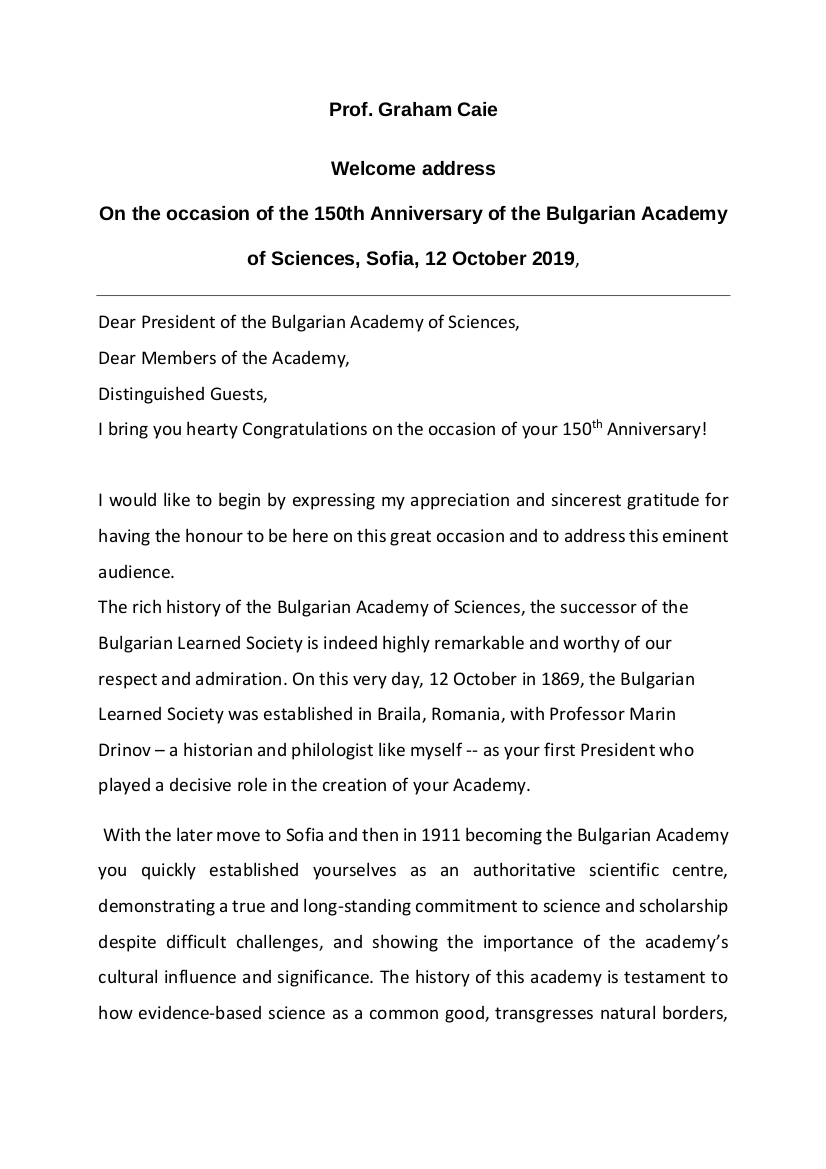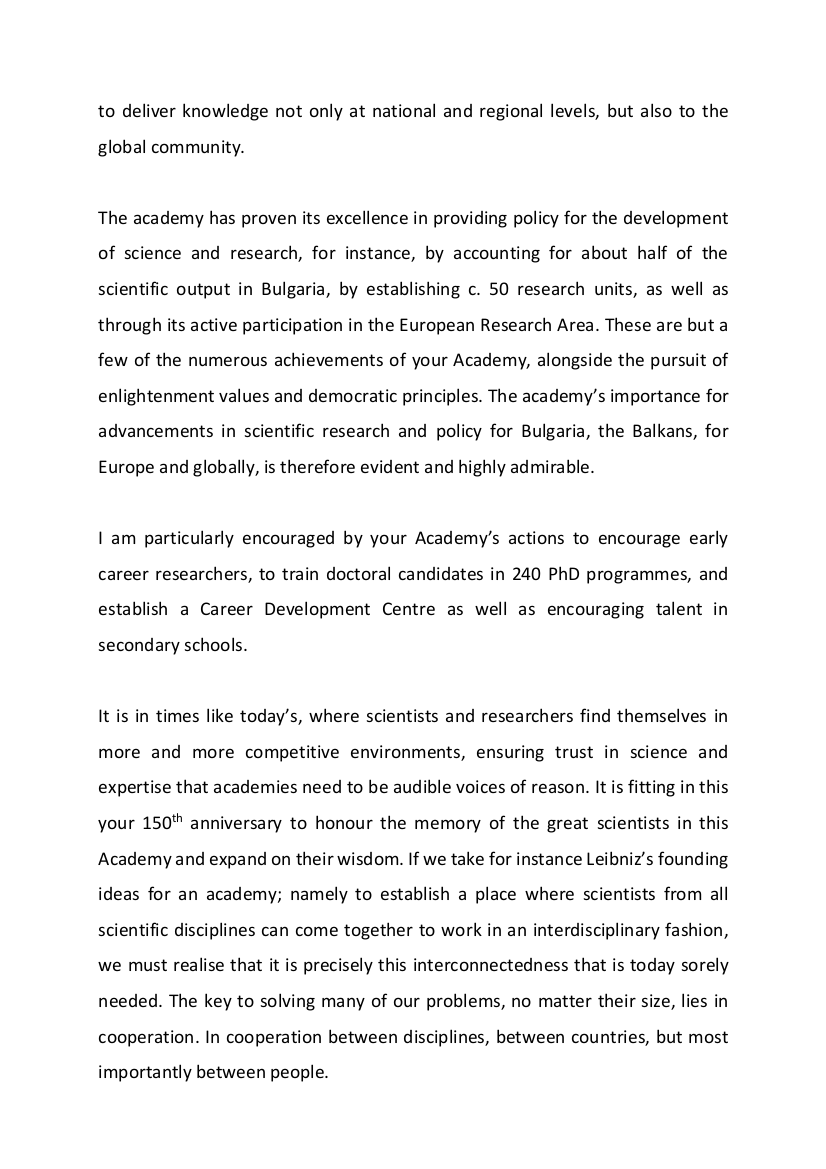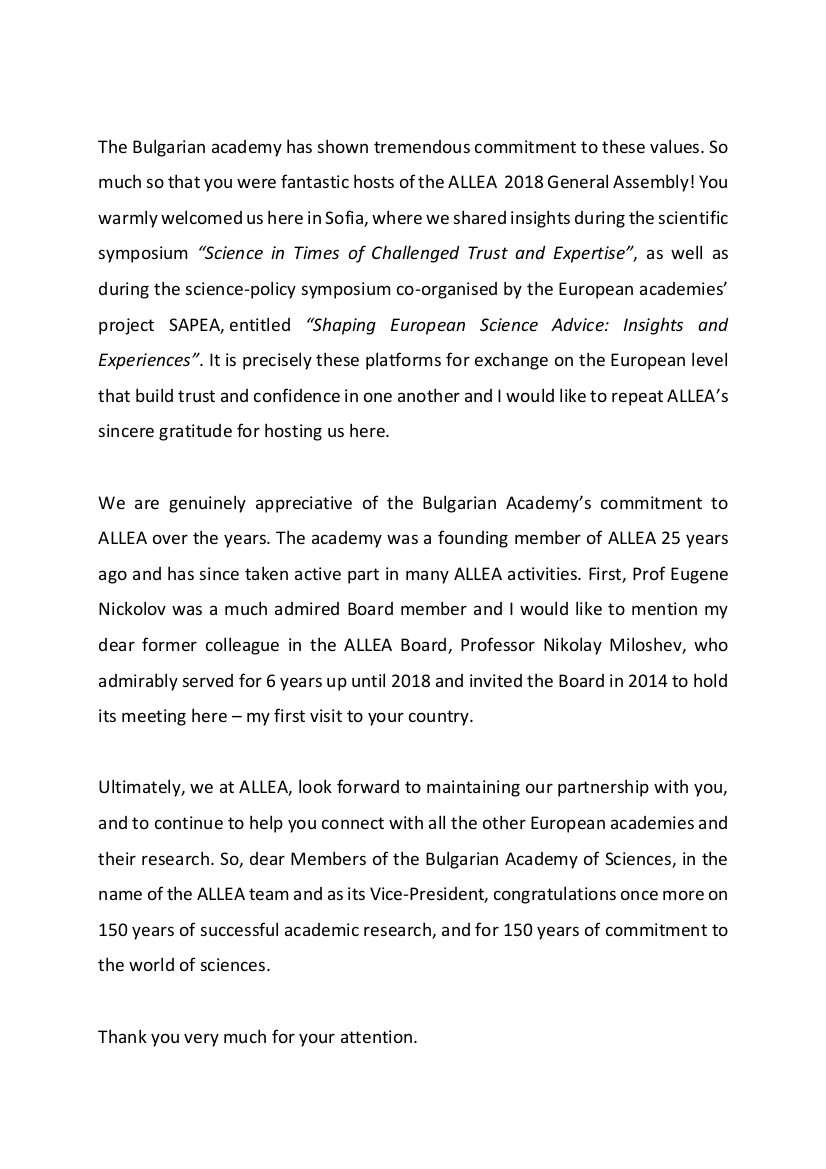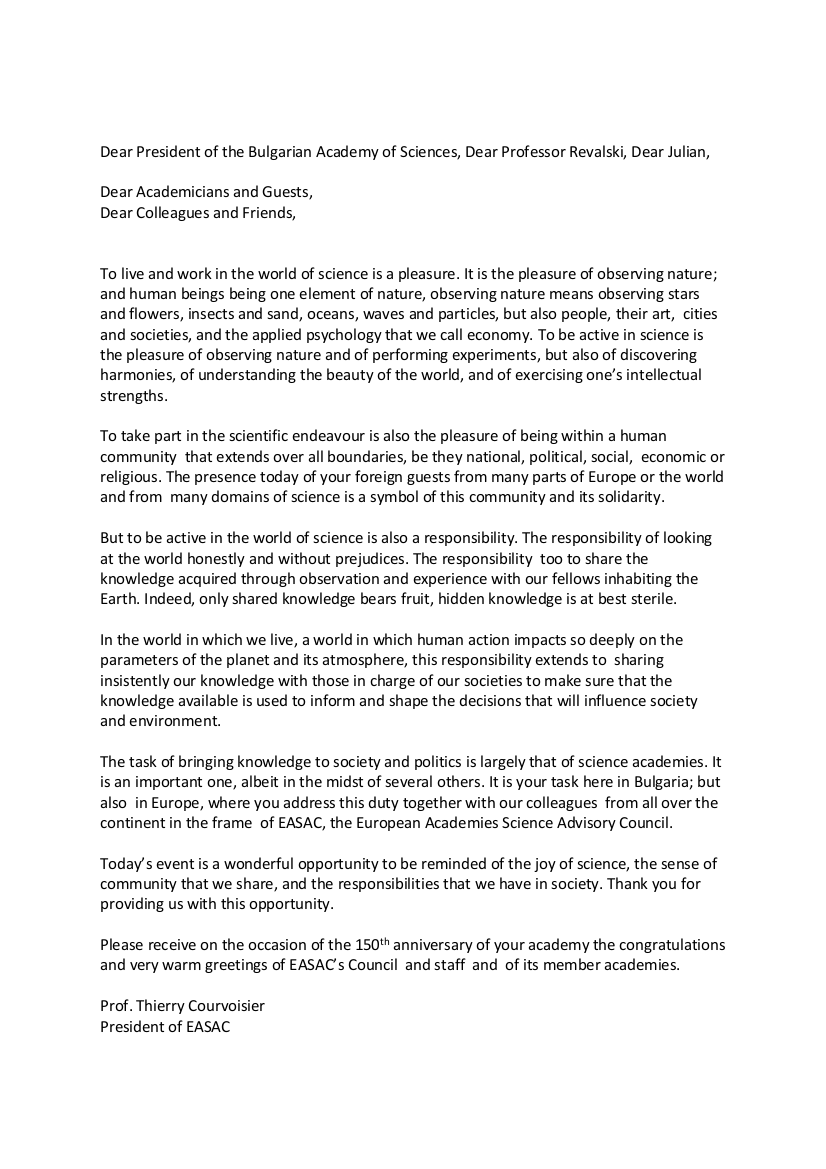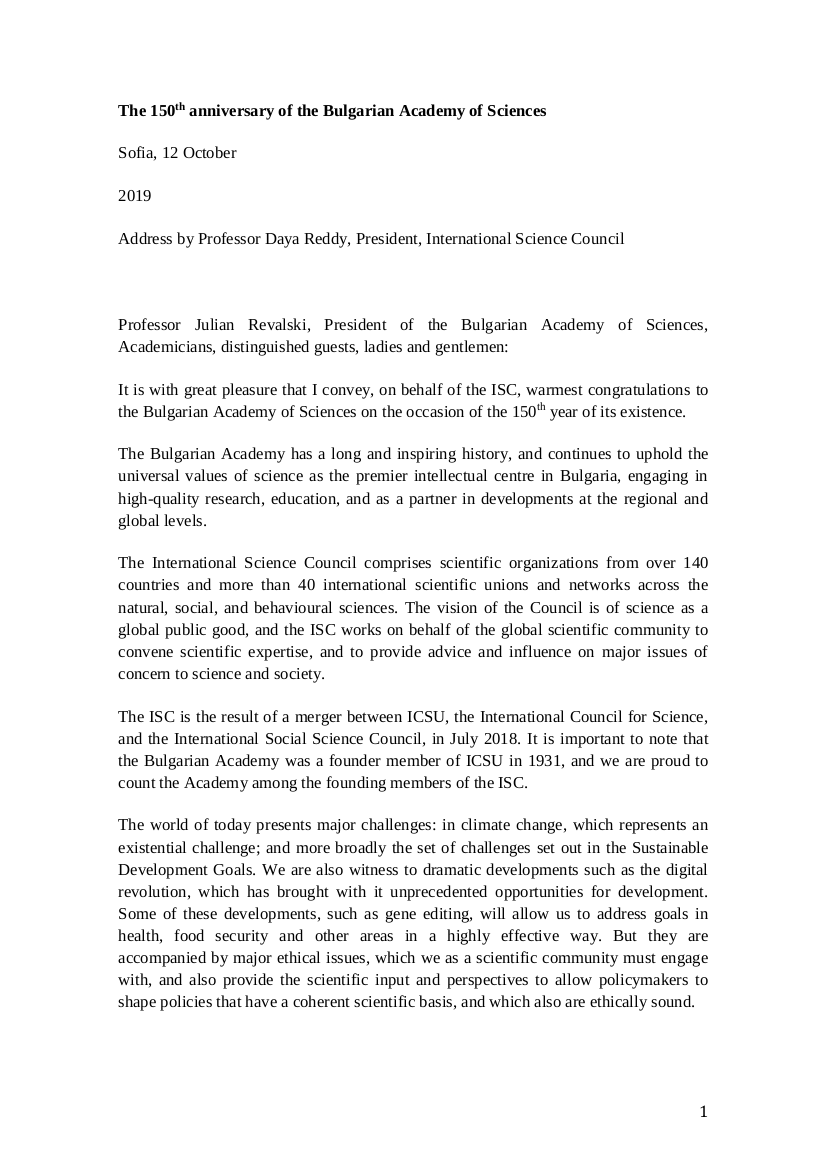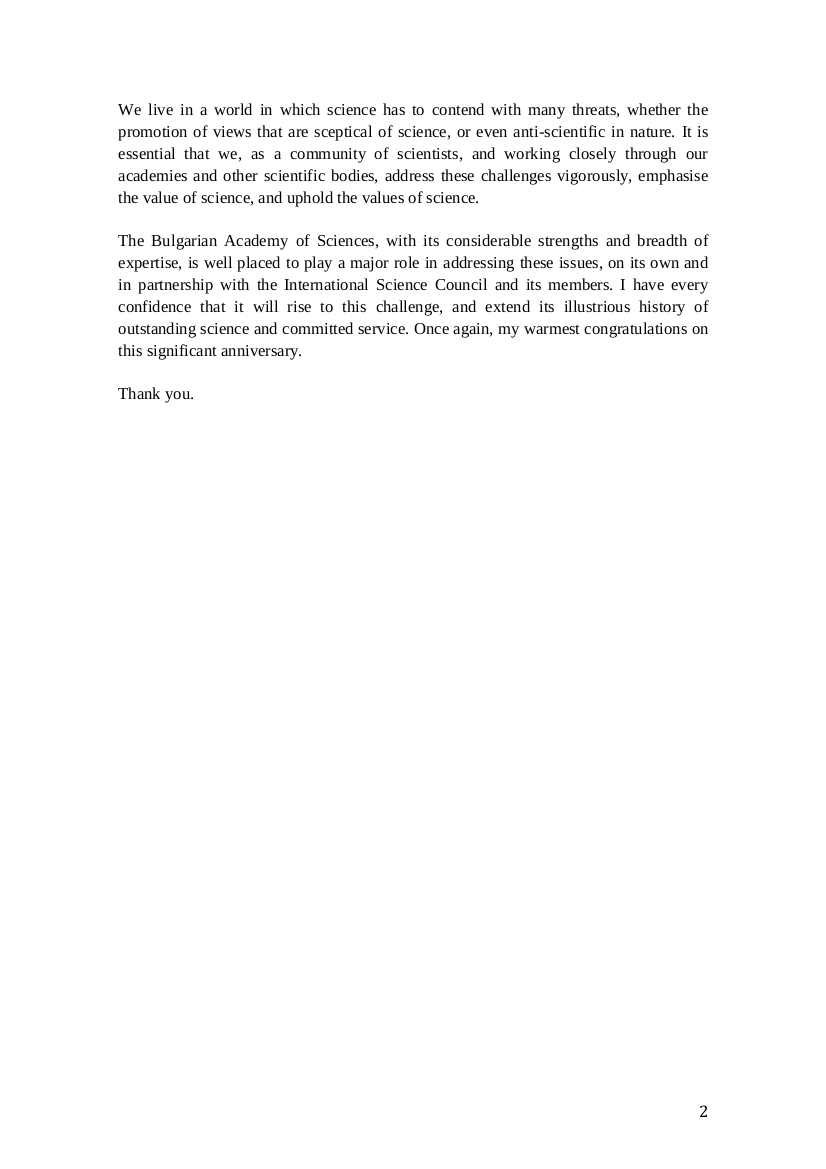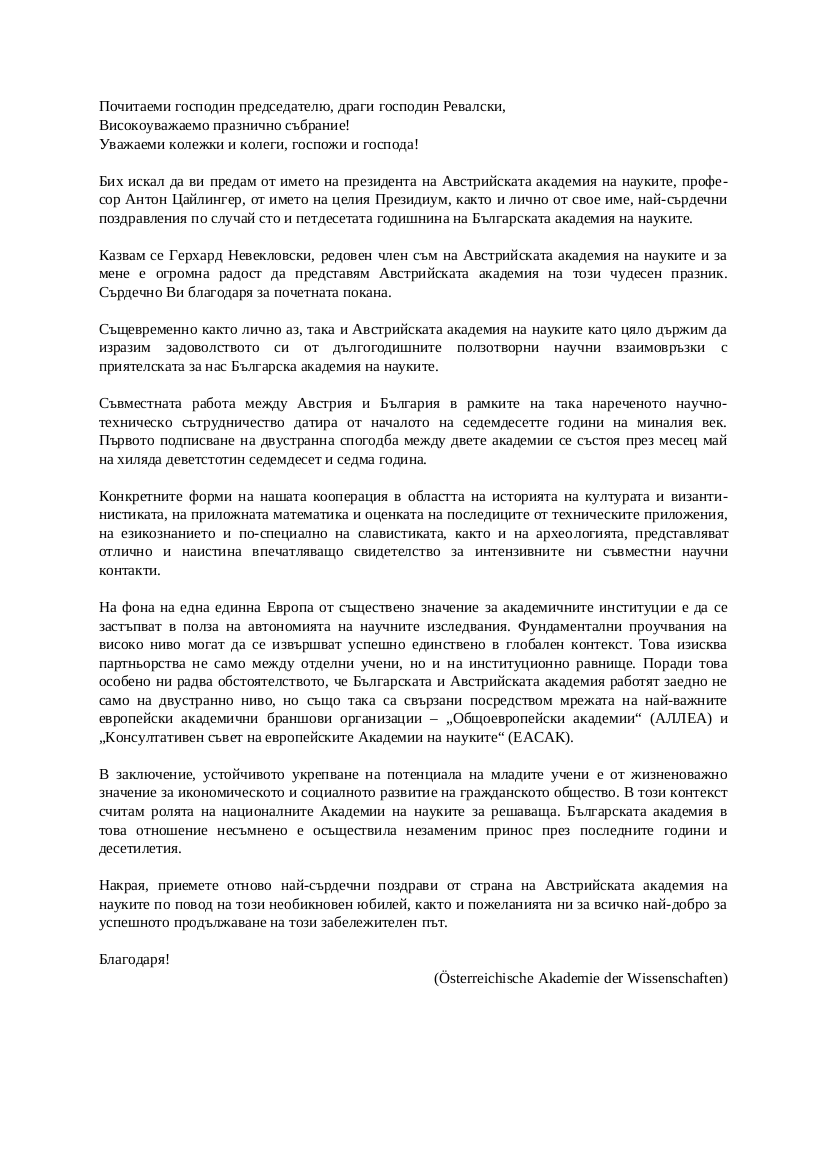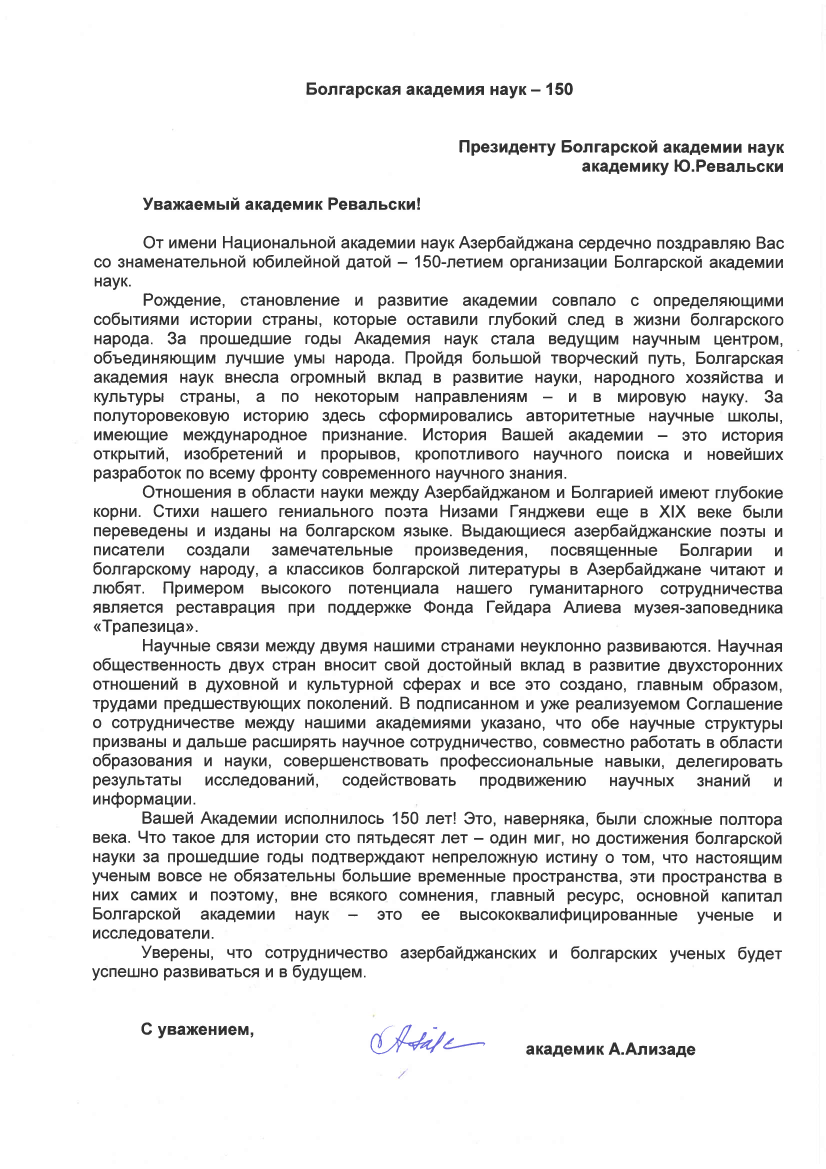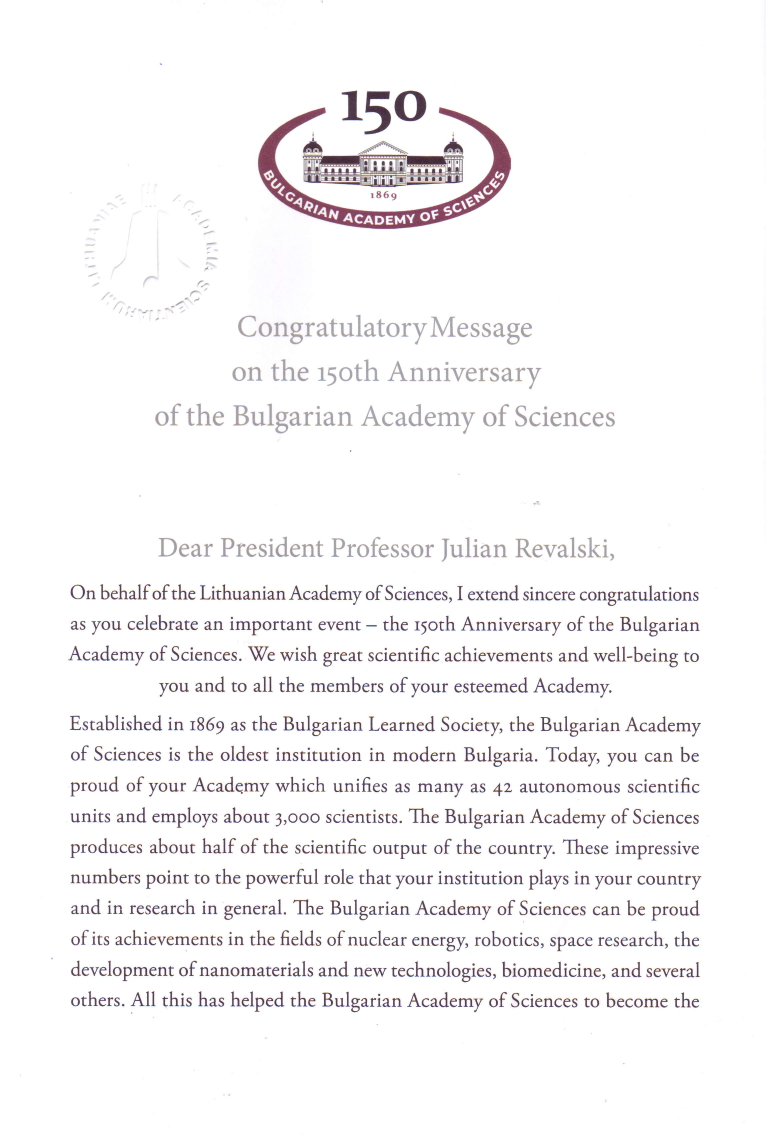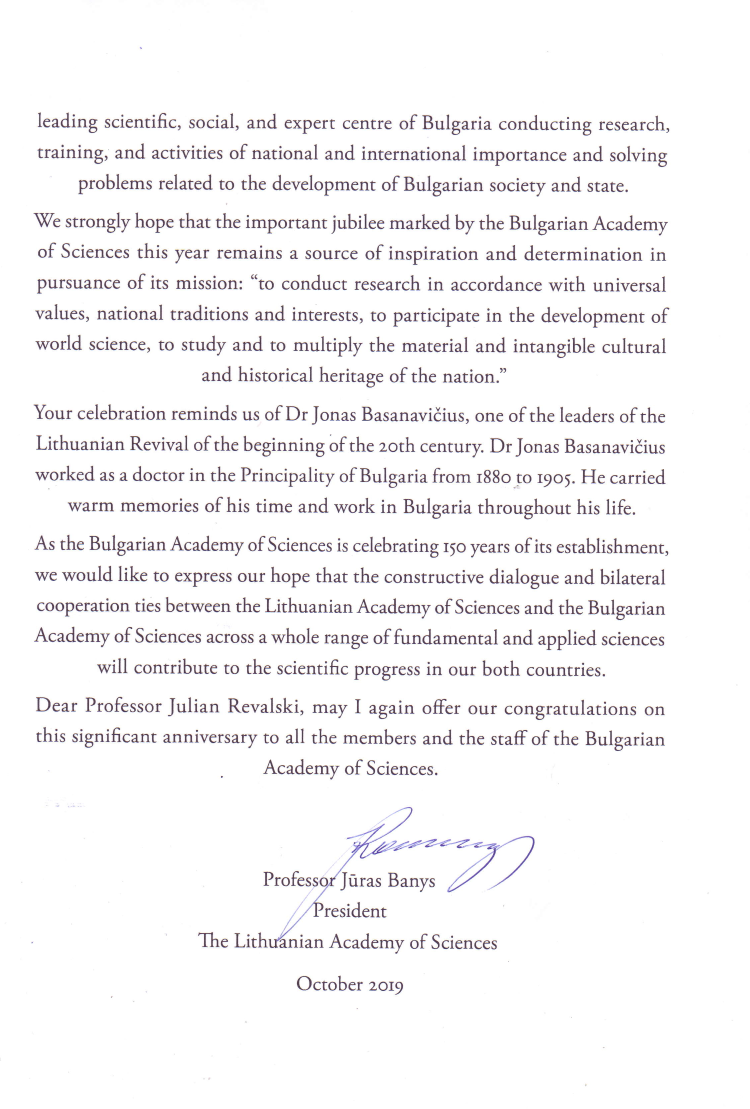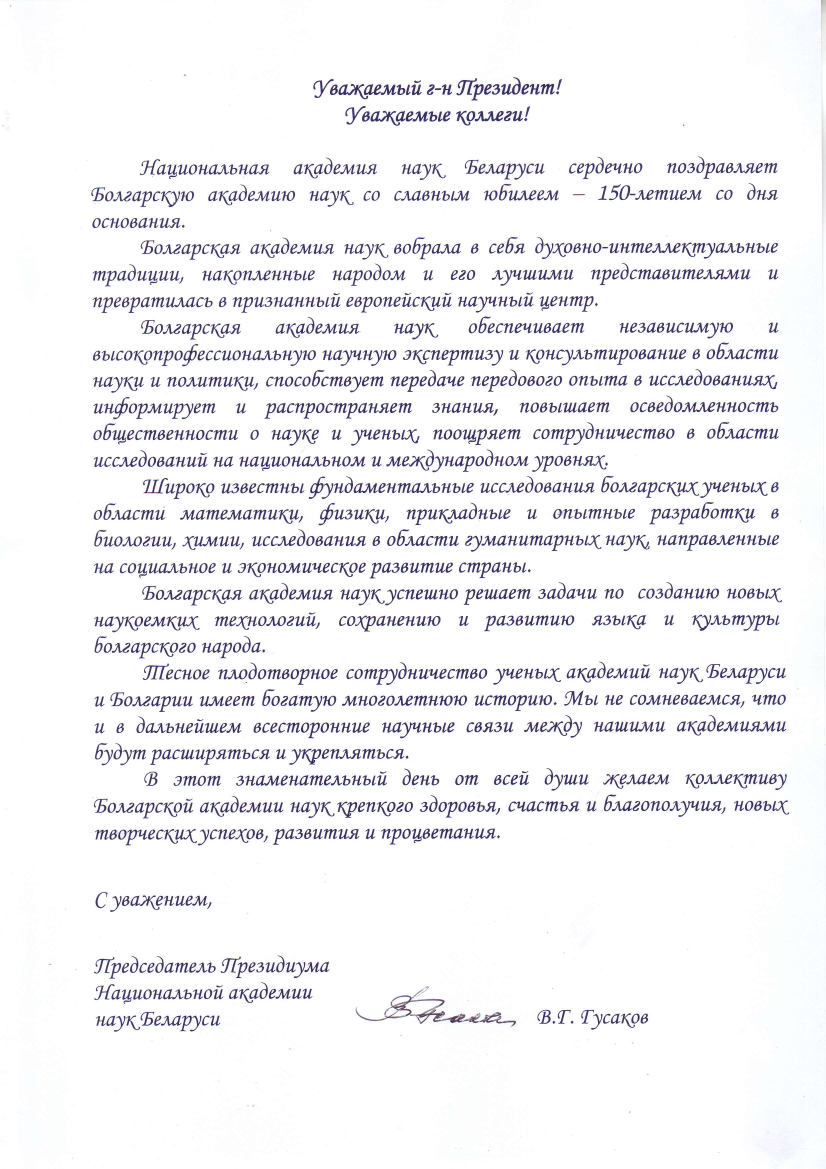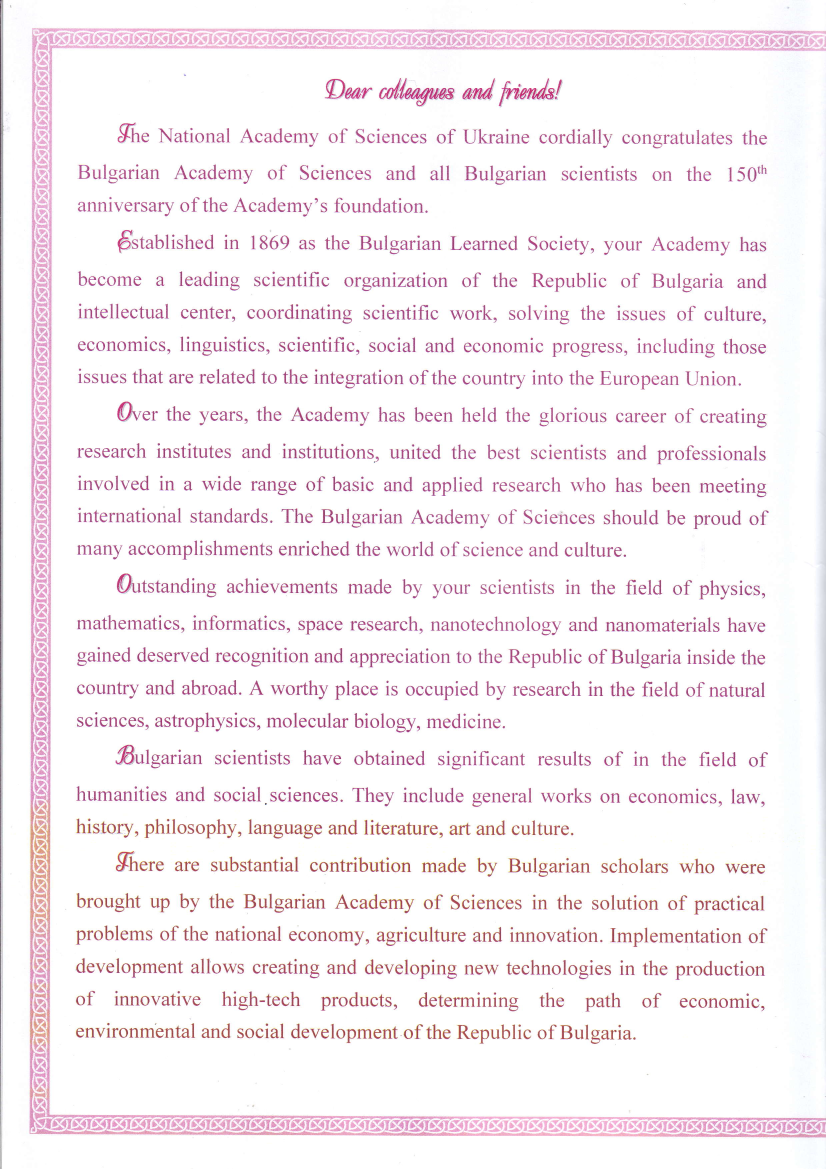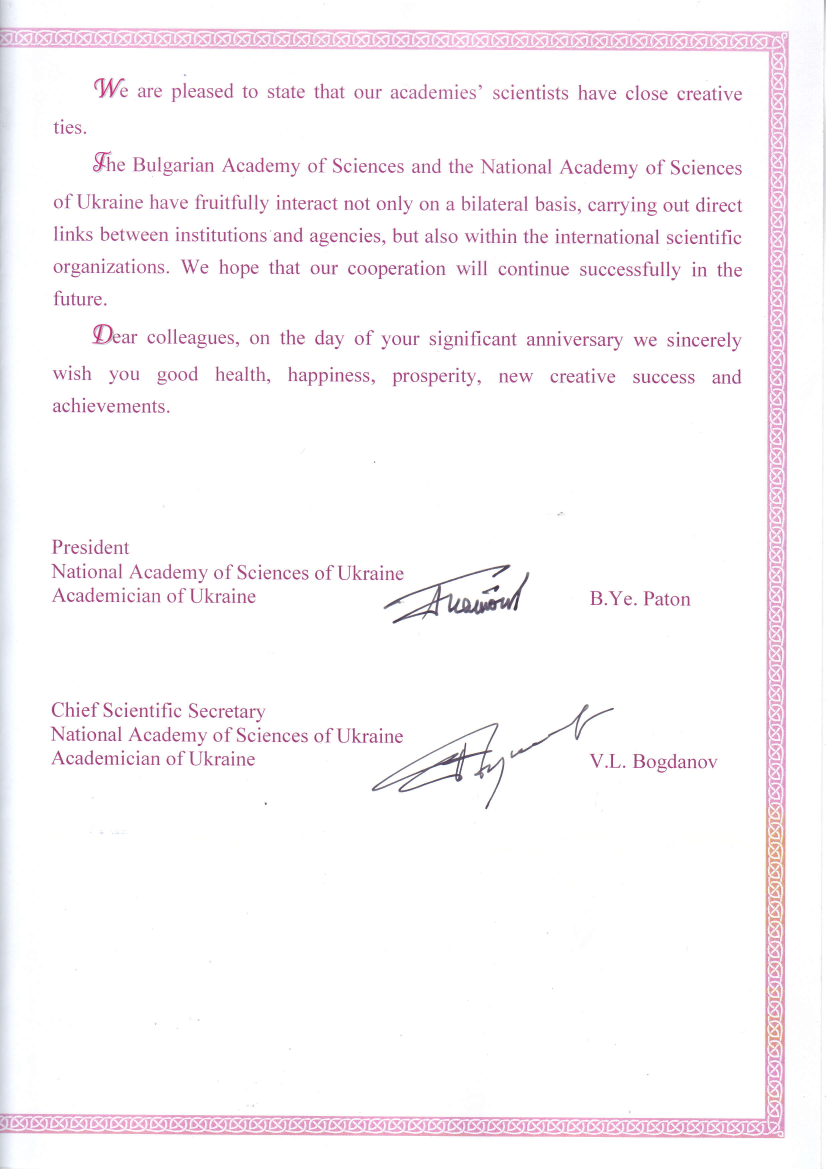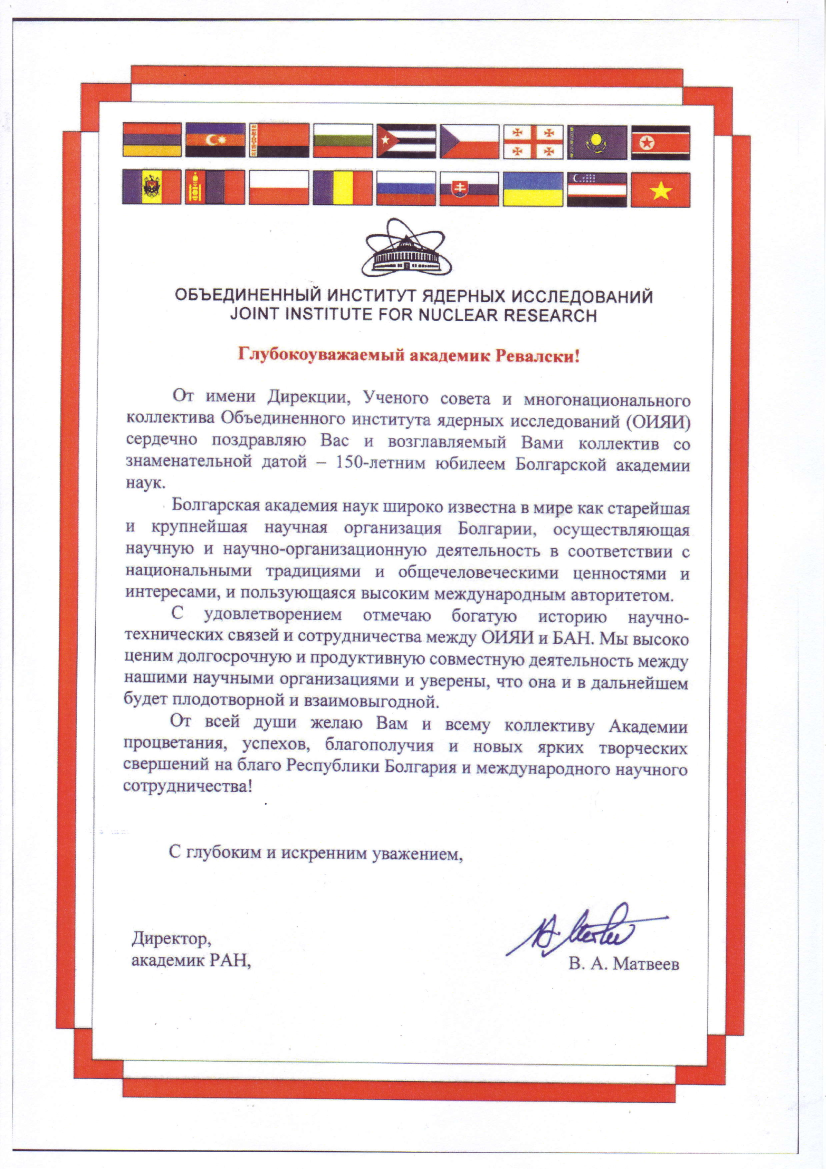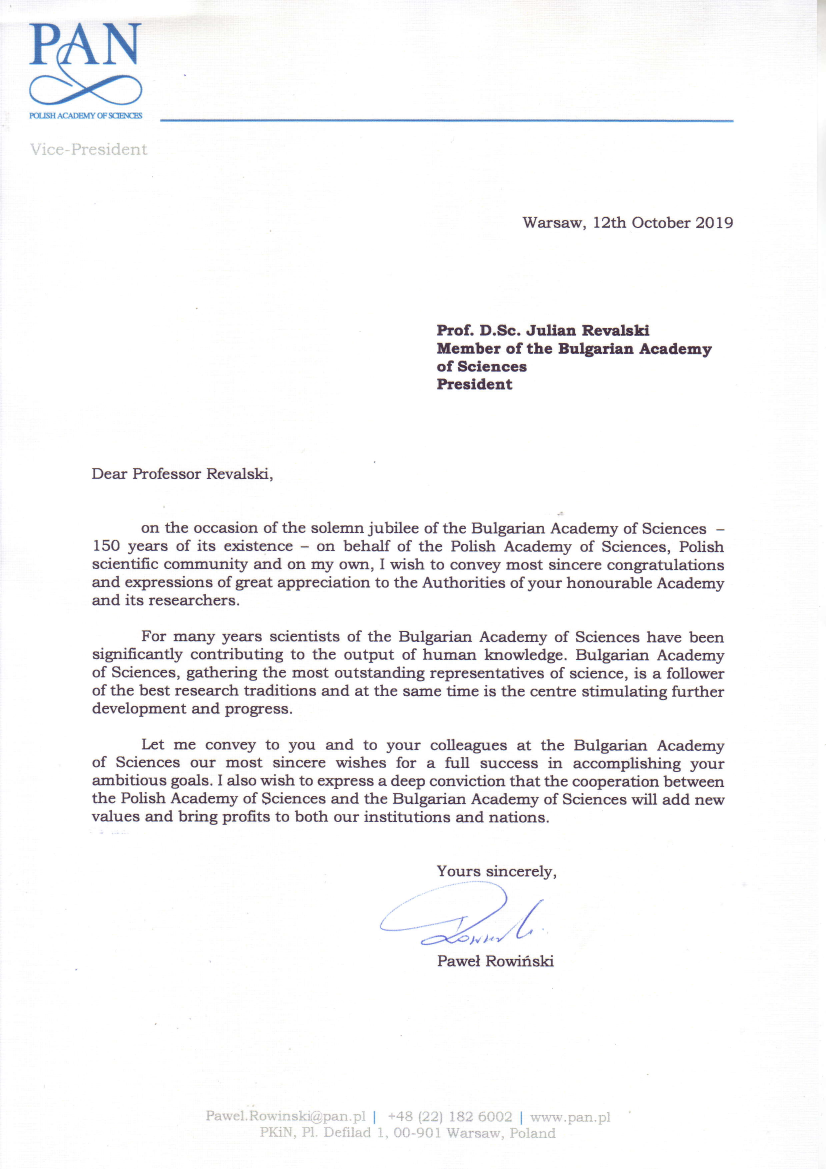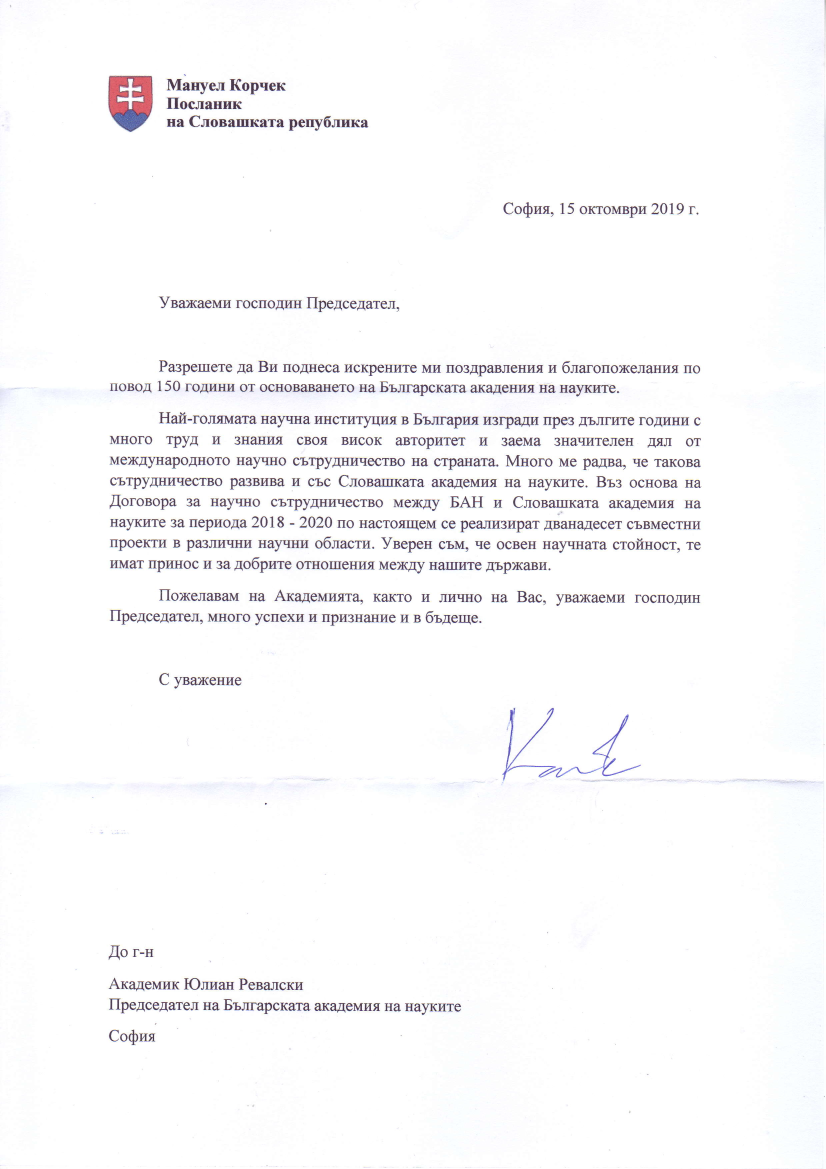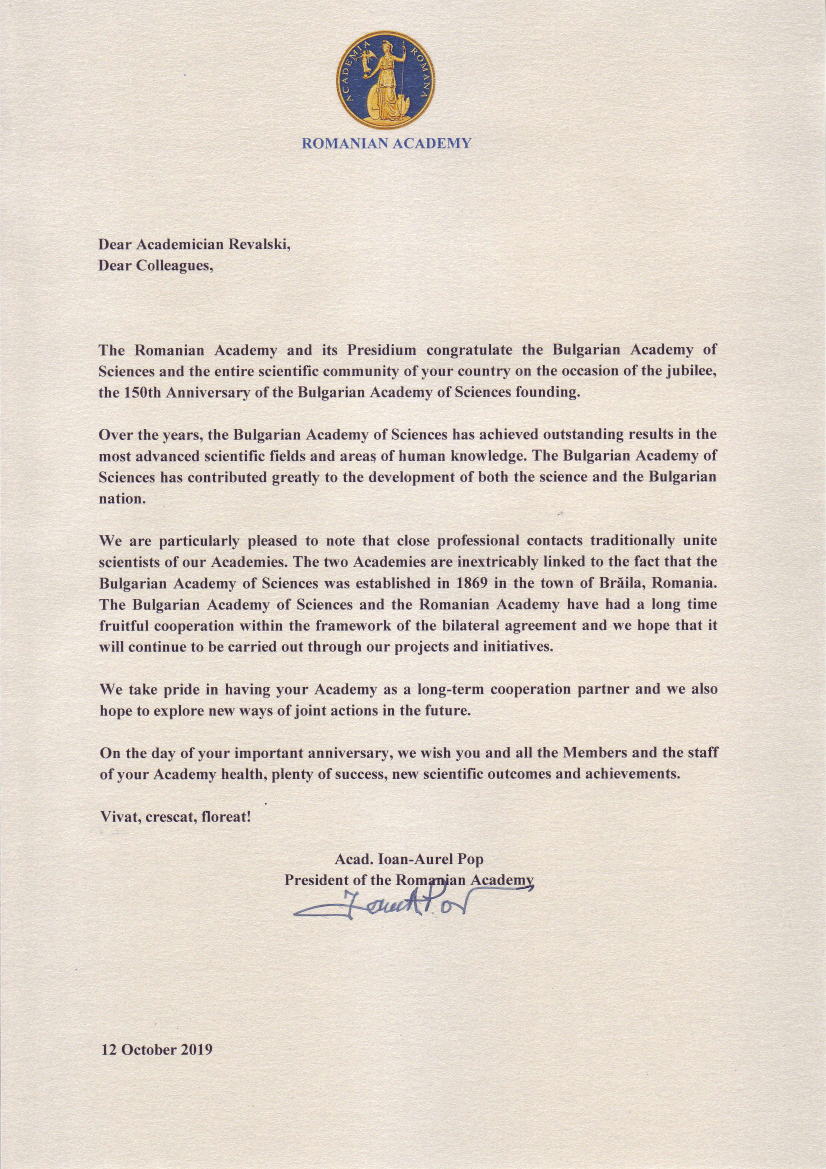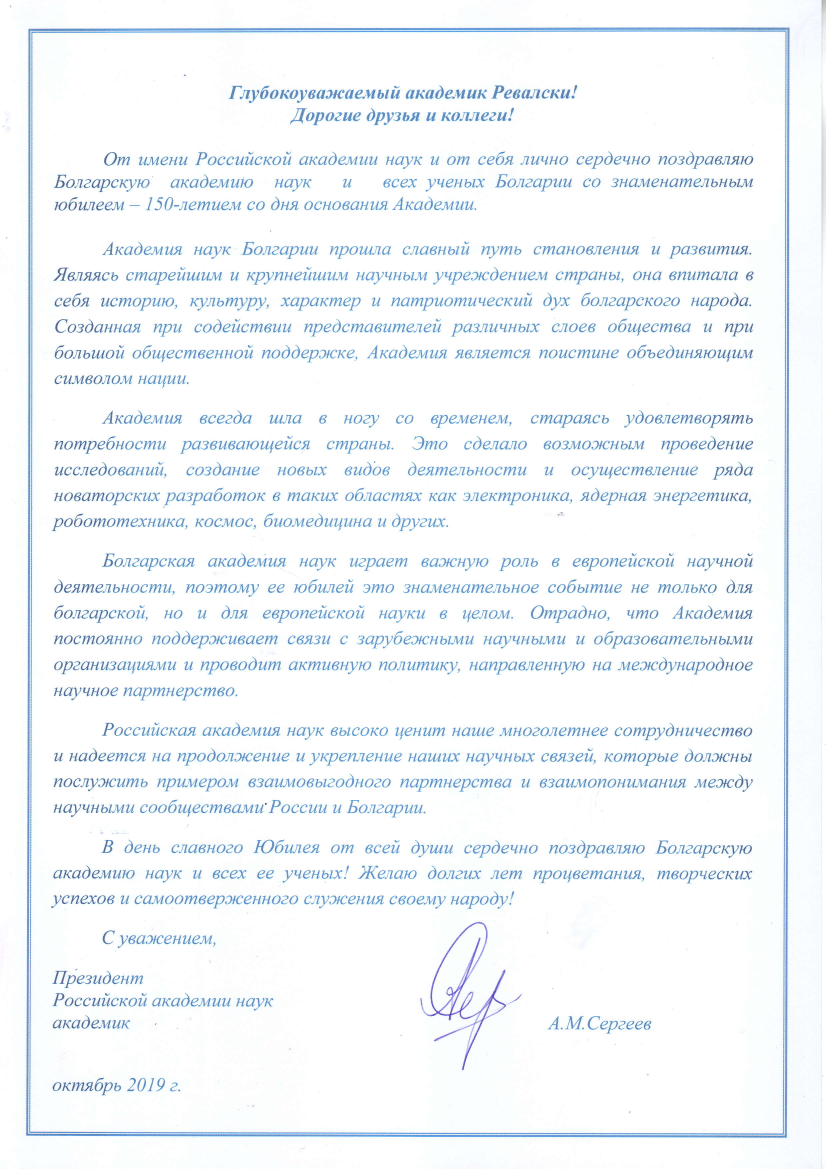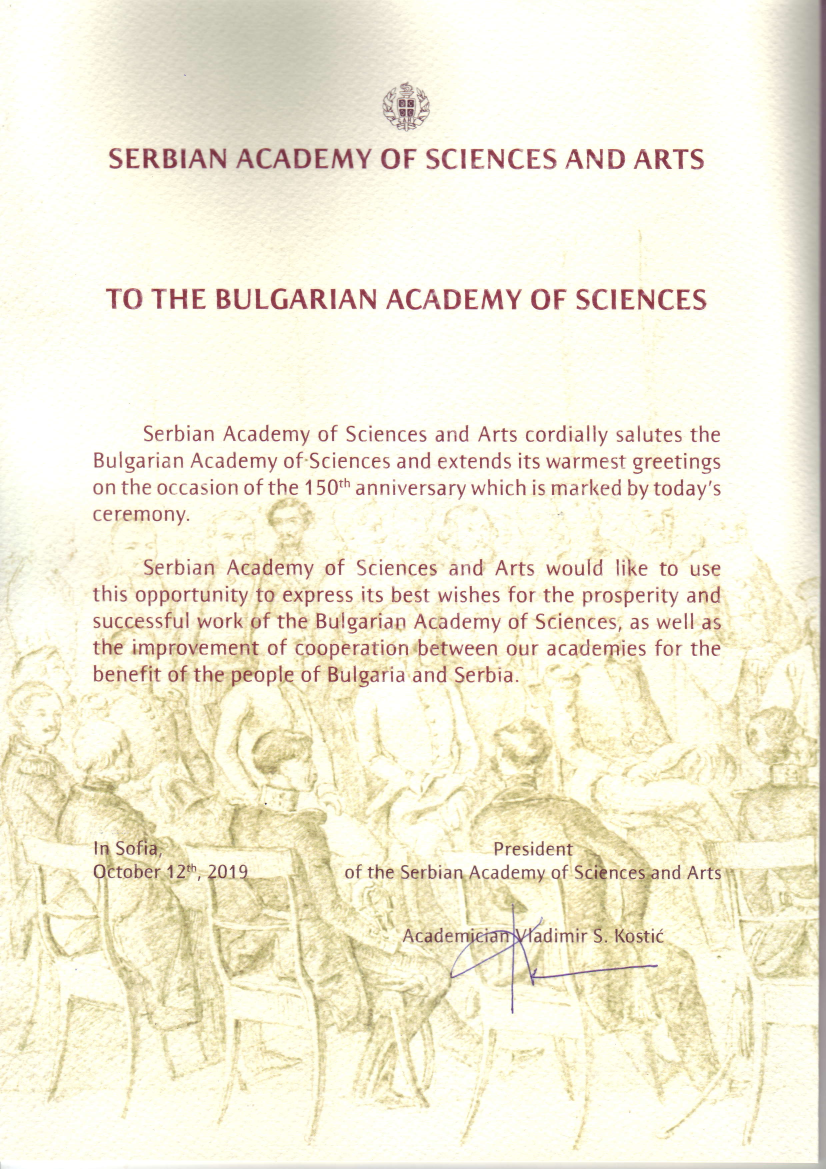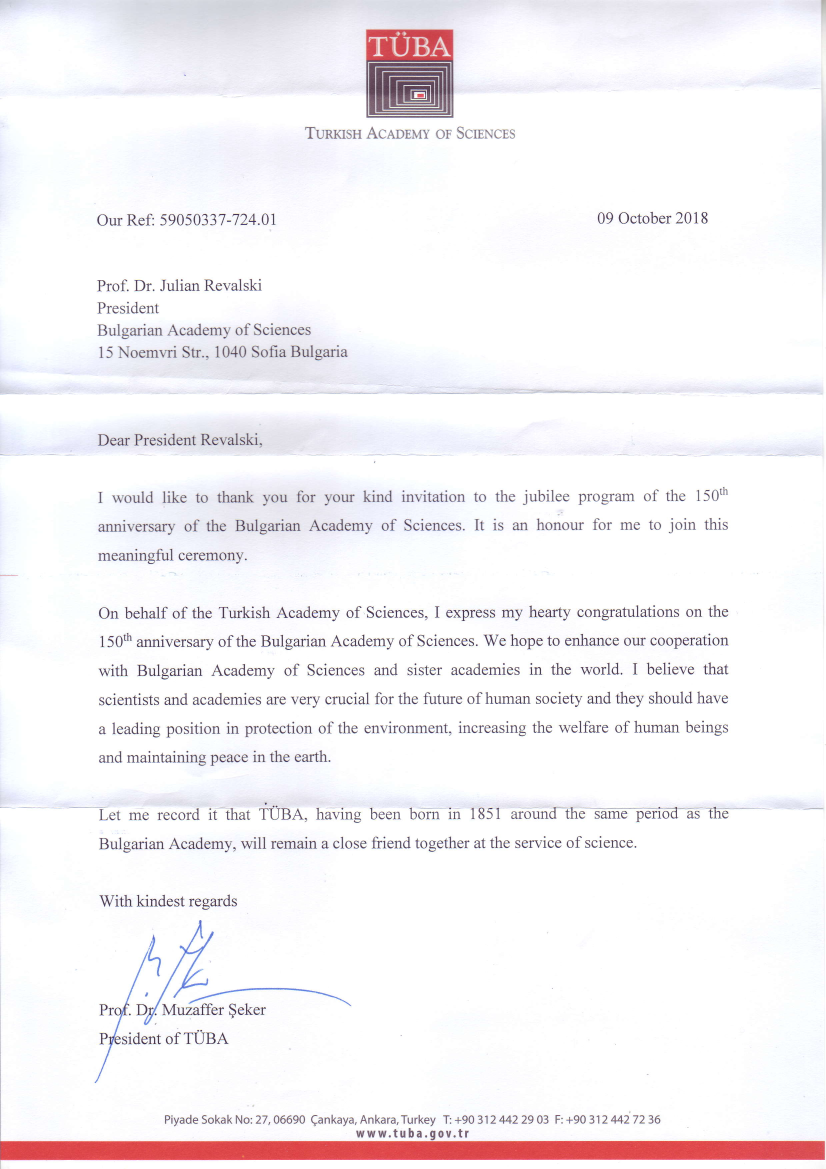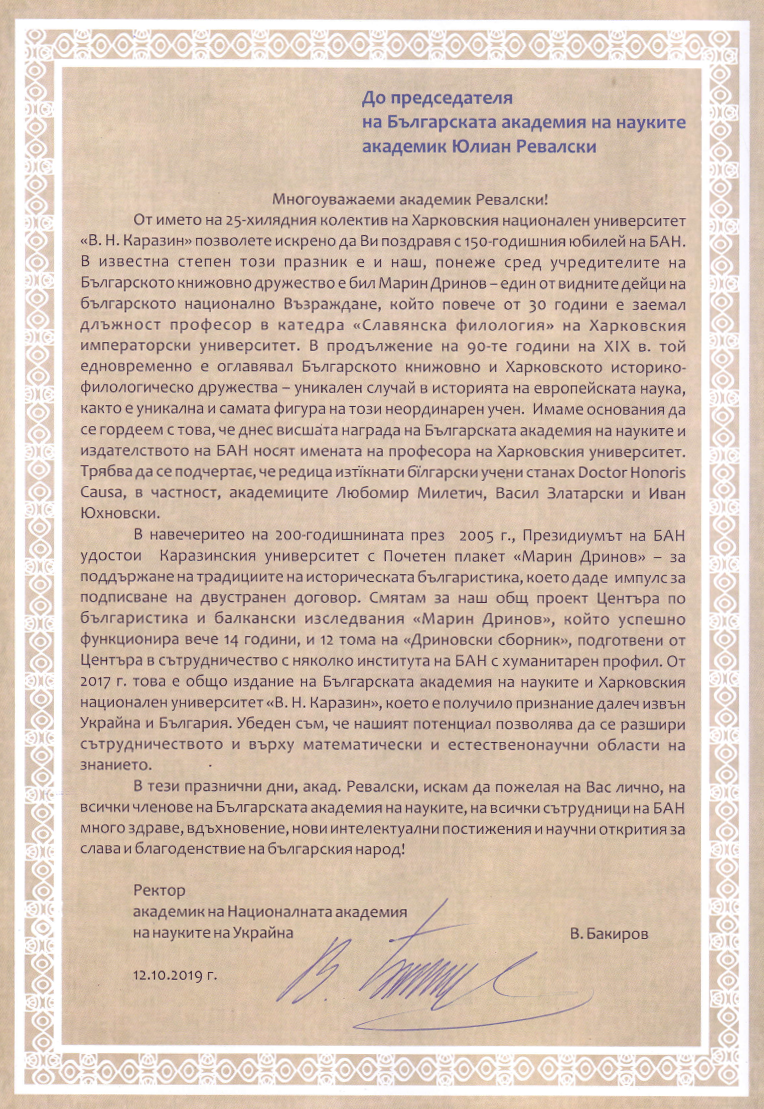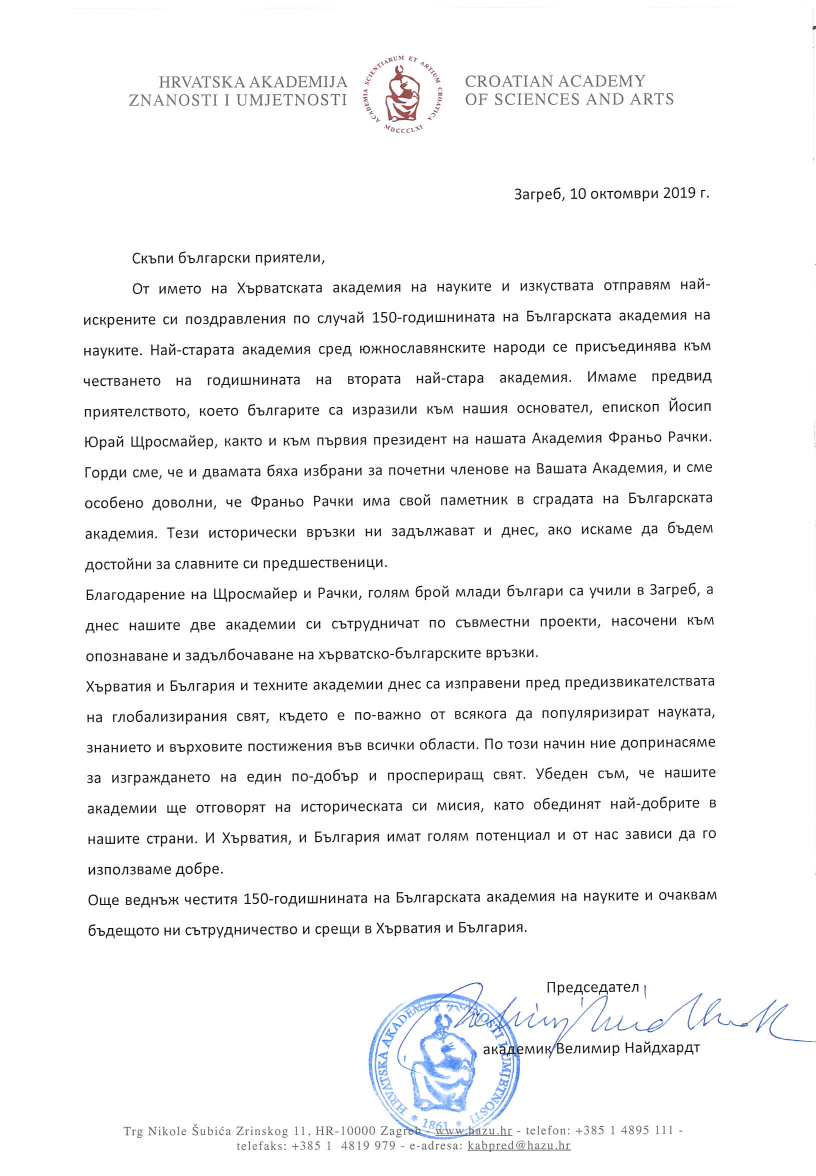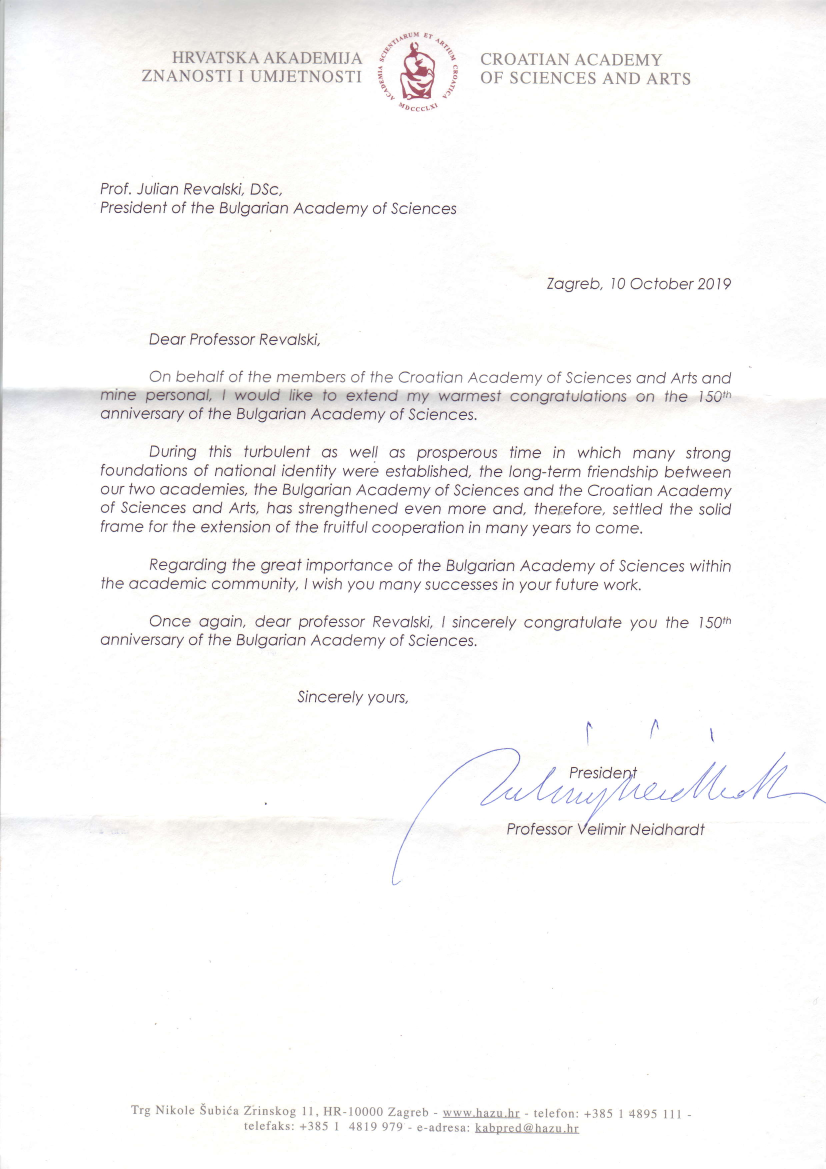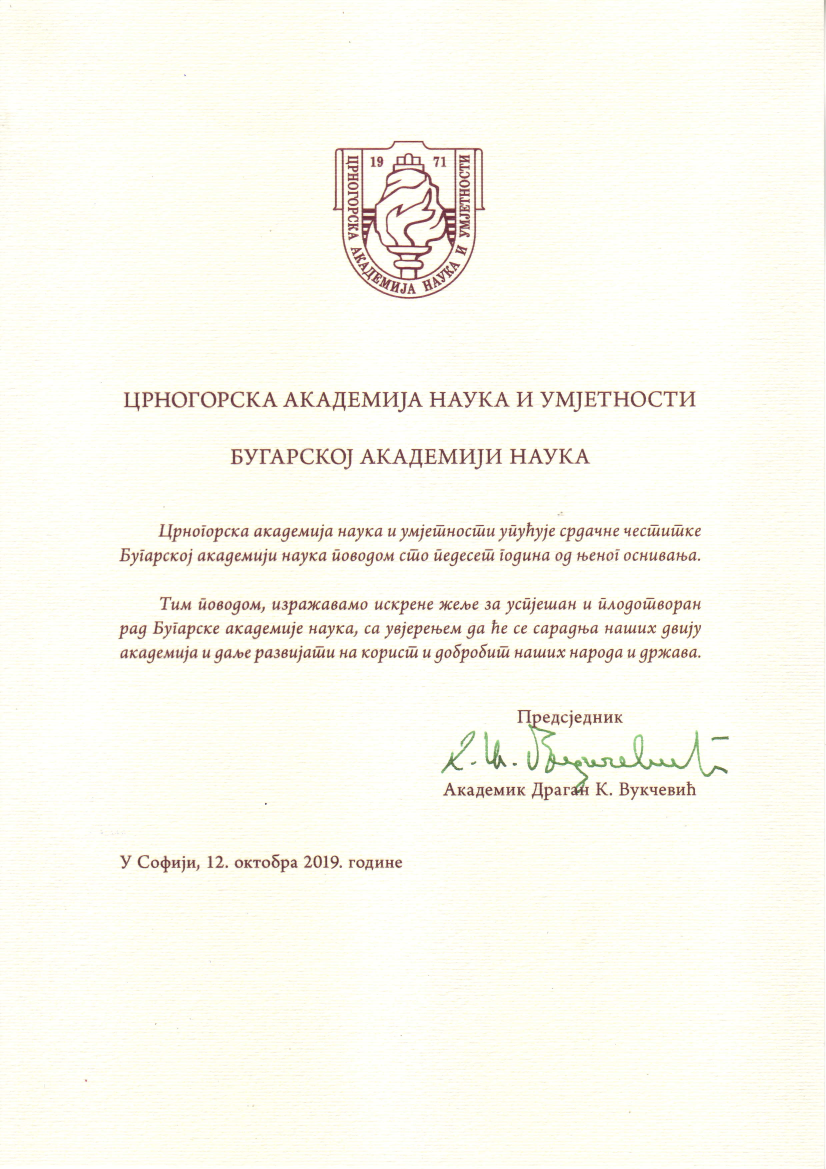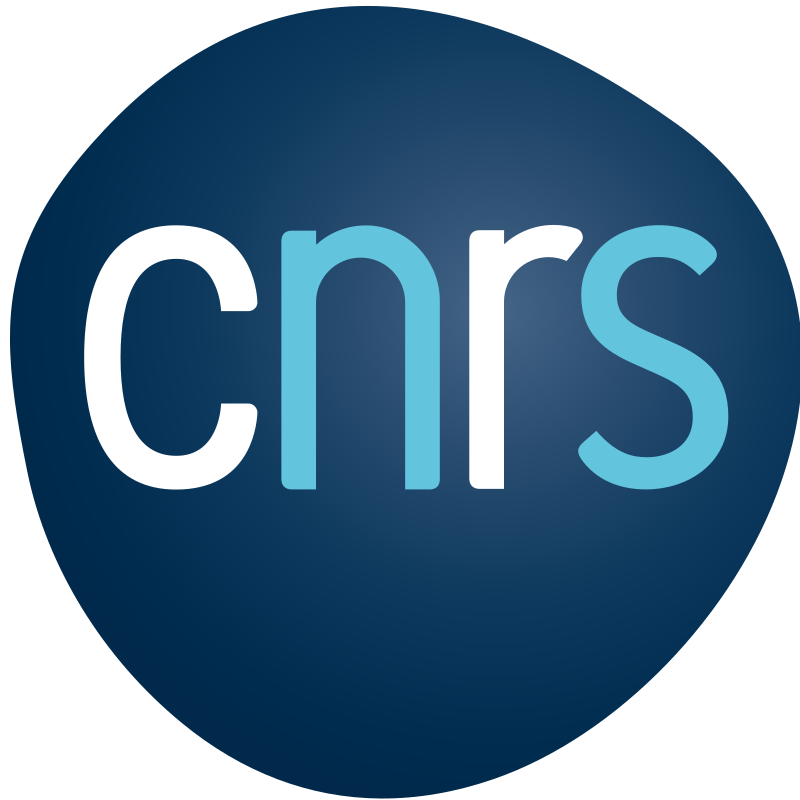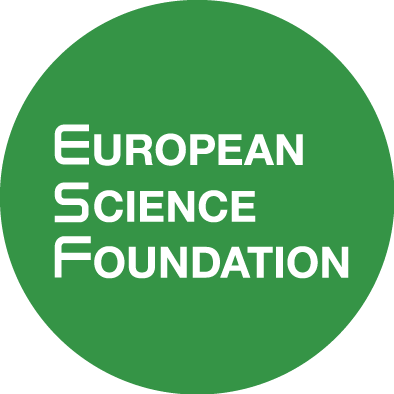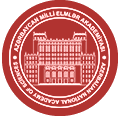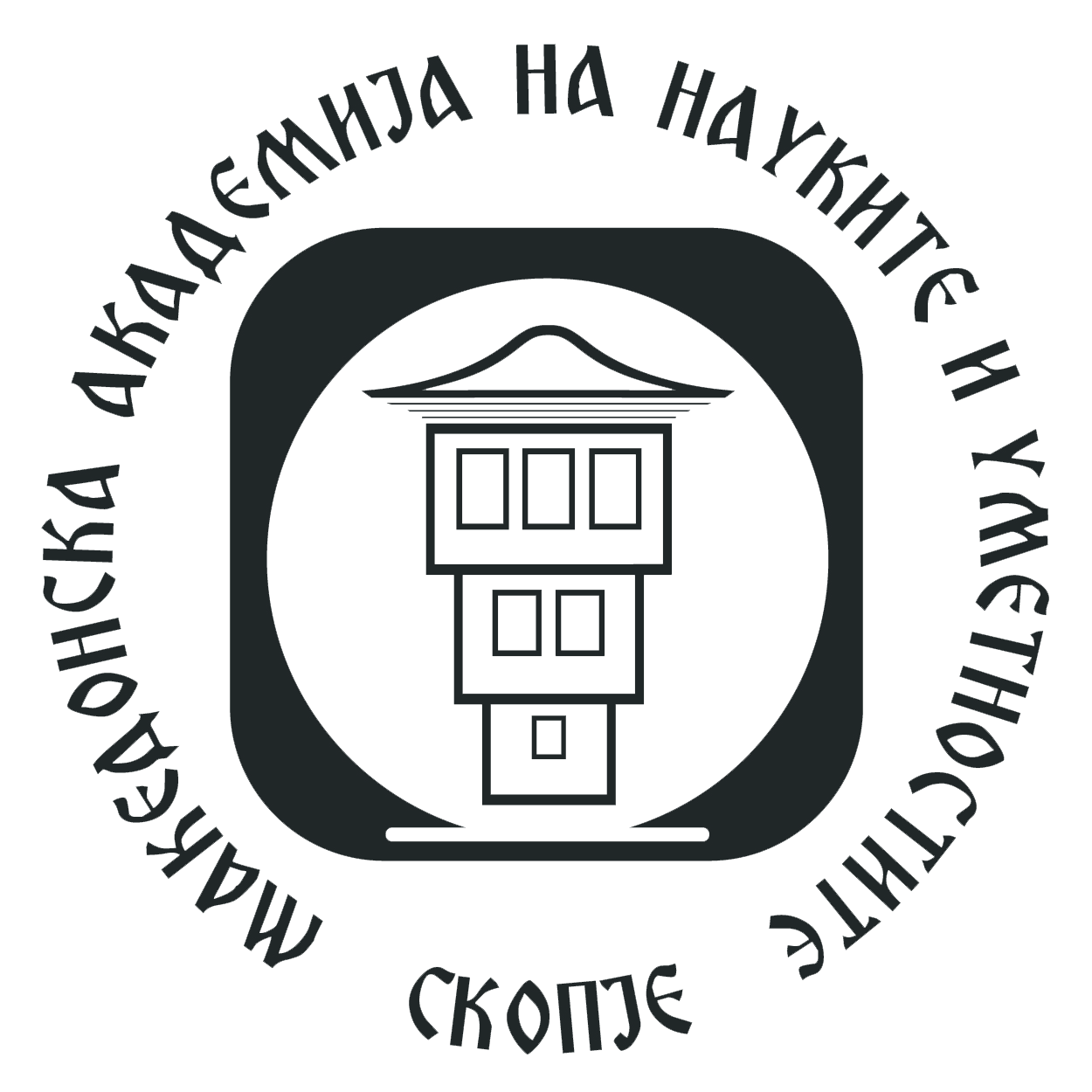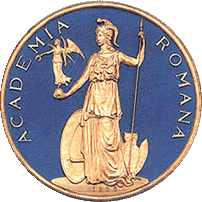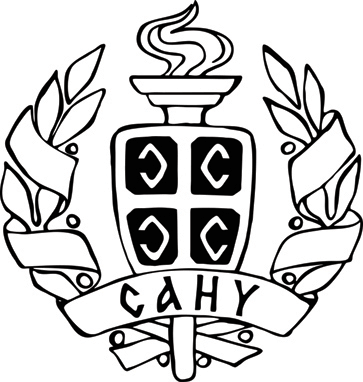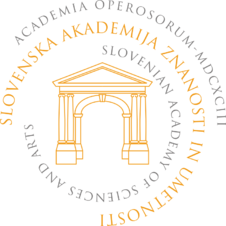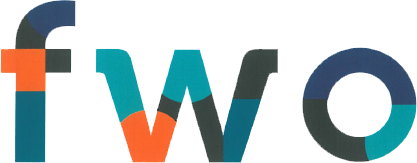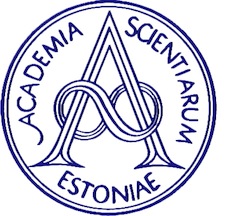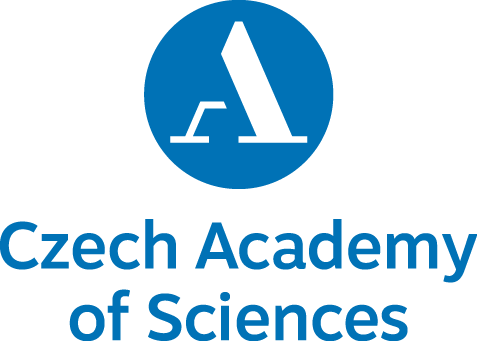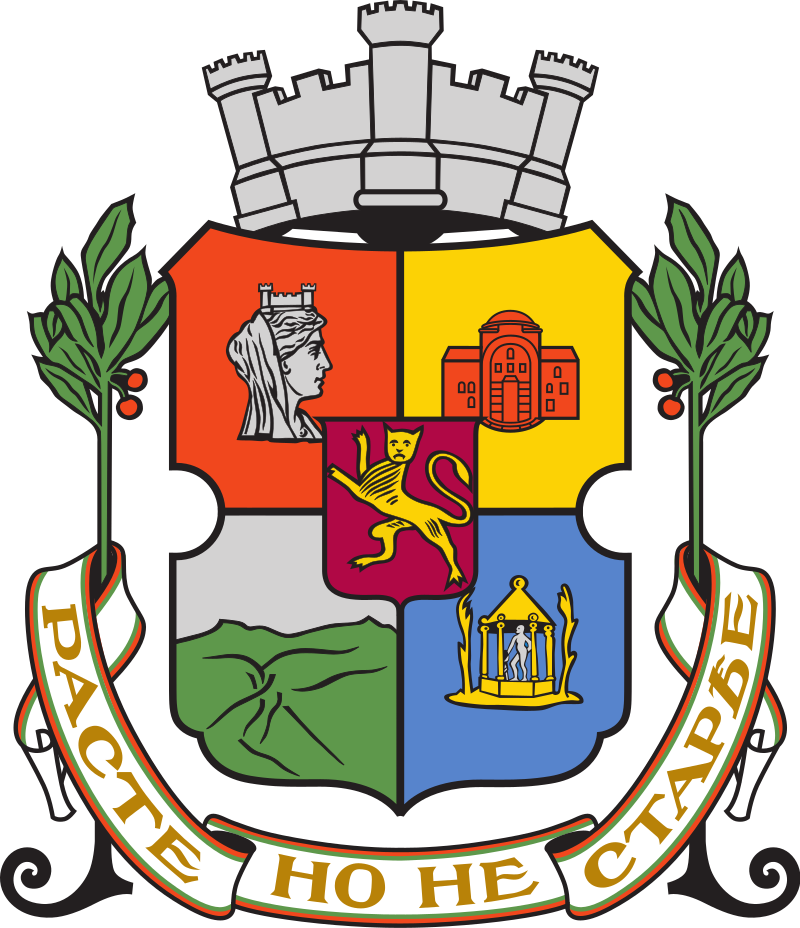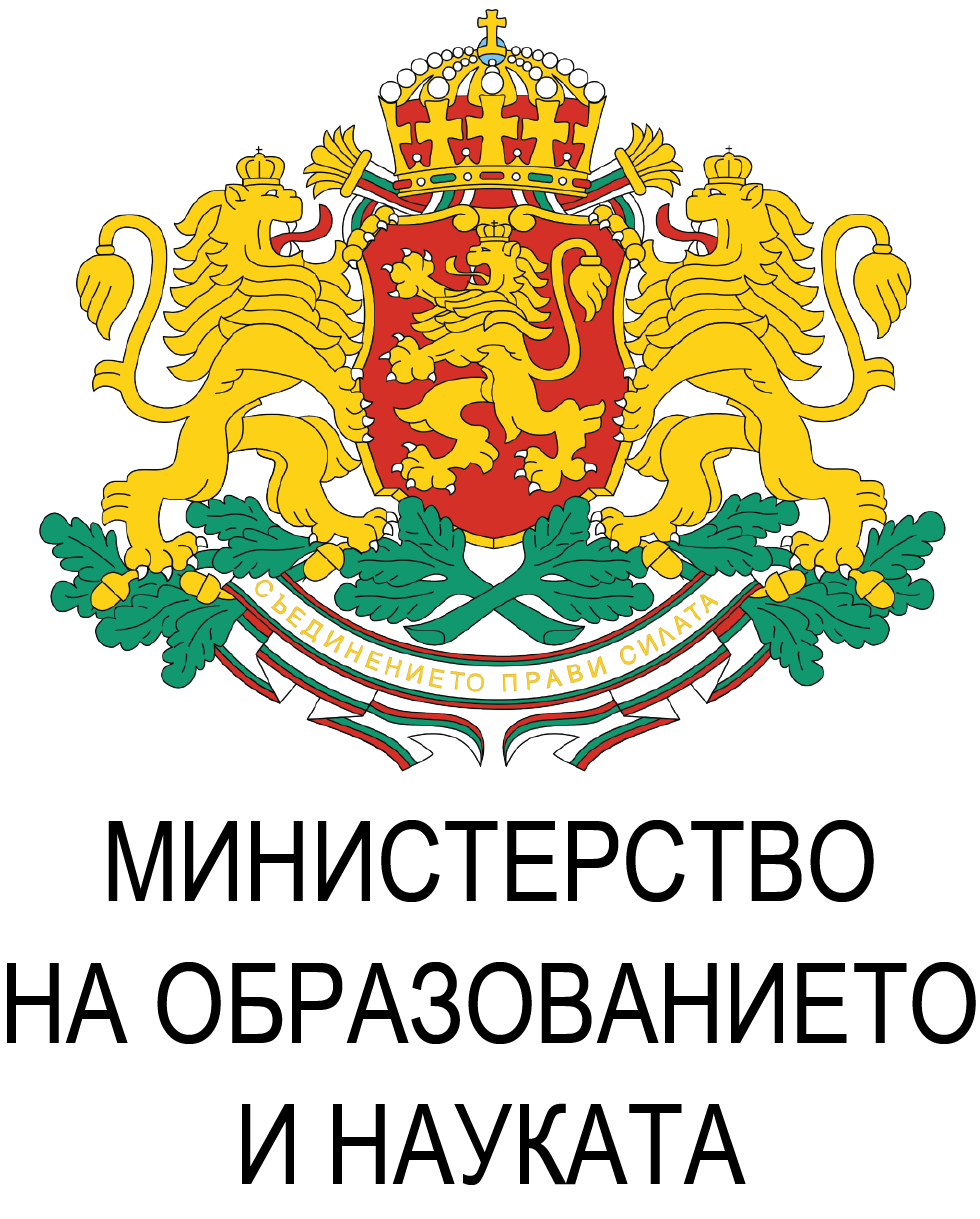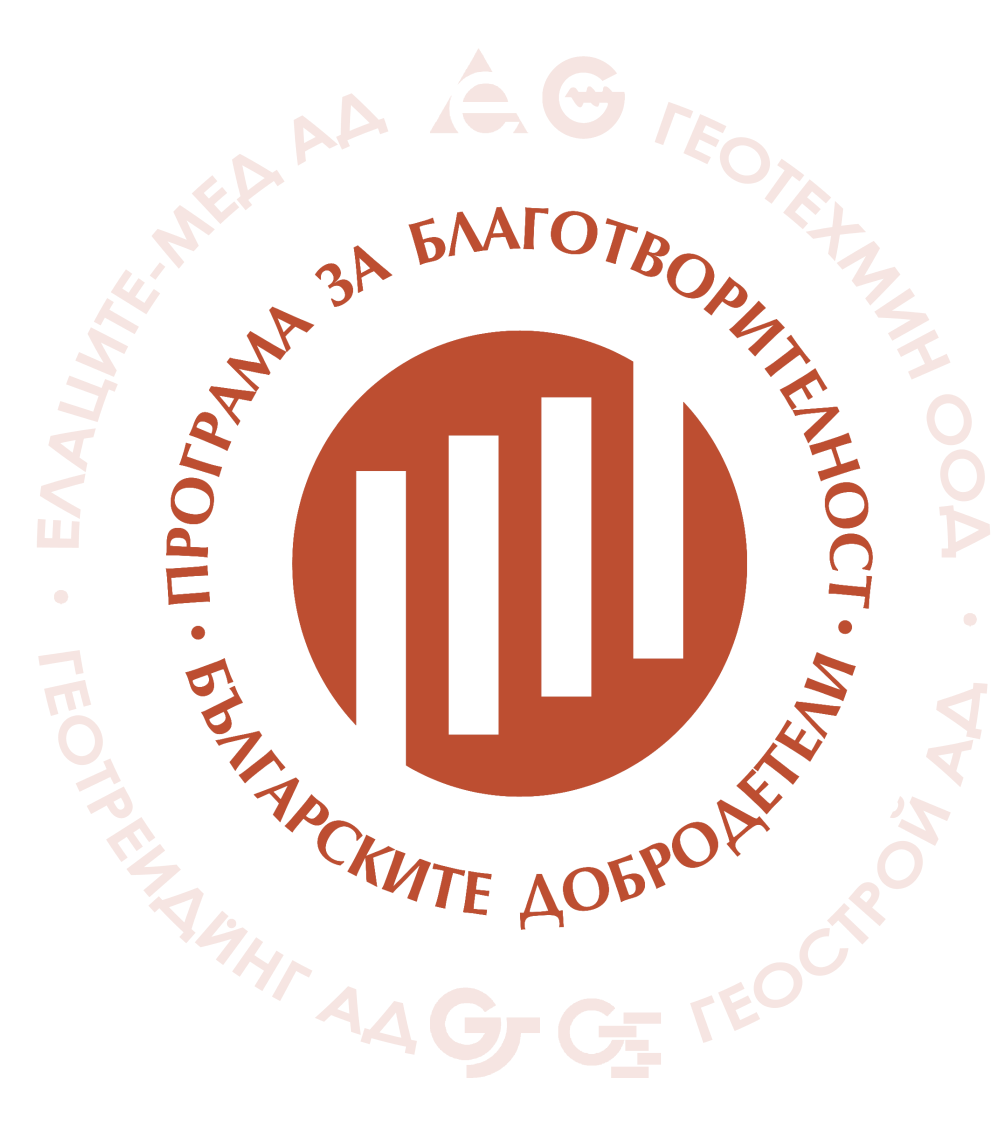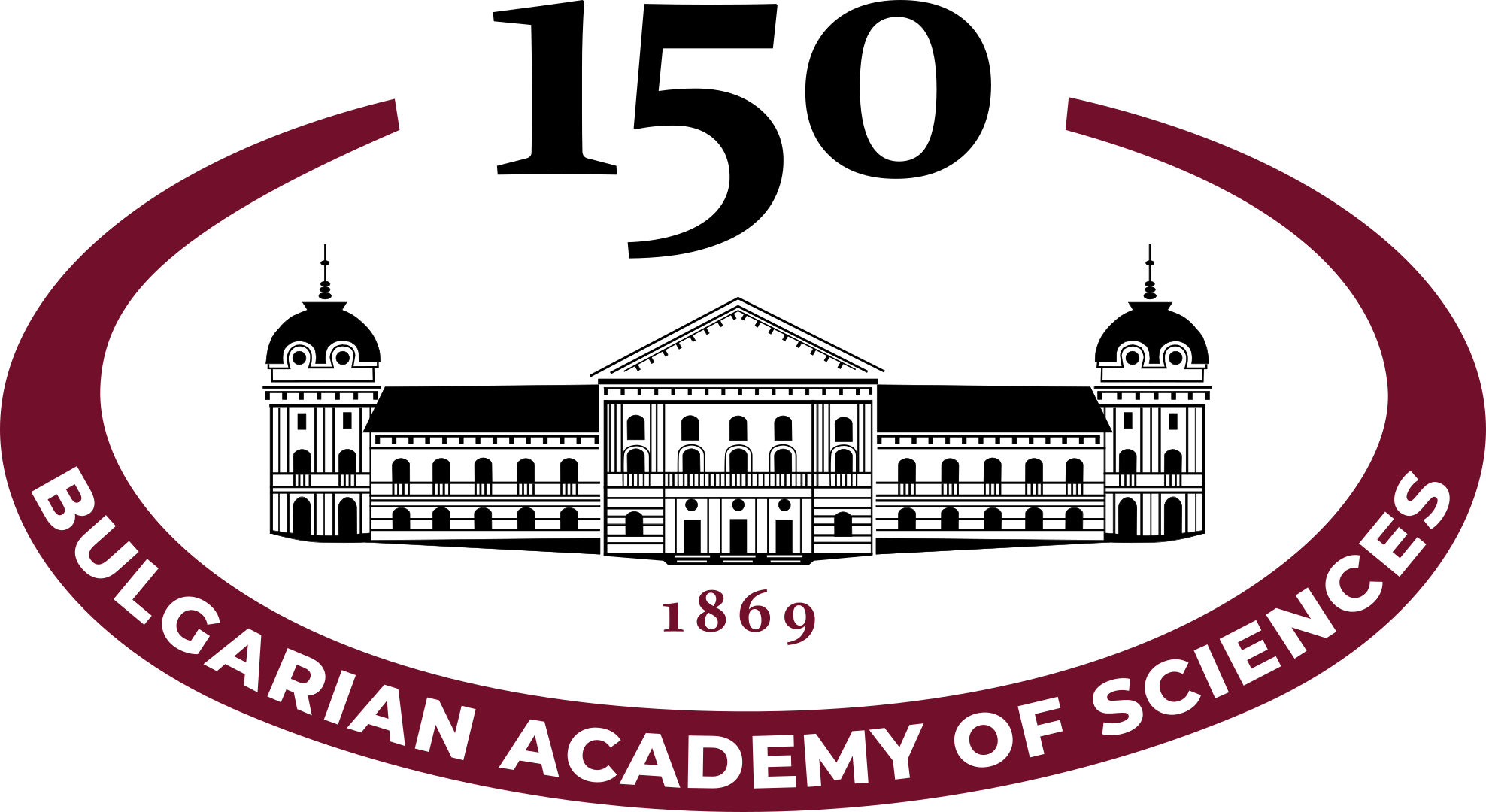
Established in 1869, the Bulgarian Academy of Sciences is the oldest institution in modern Bulgaria. It carries out scientific work in accordance with the universal values, national traditions and interests.
150 years BAS
Address of the President of BAS
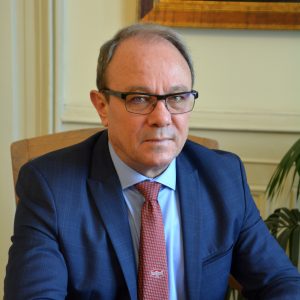 The Bulgarian Academy of Sciences (BAS), successor of the Bulgarian Learned Society (BLS), is the oldest and largest scientific institution in the country, founded nine years before the Third Bulgarian Kingdom. The creation of the Bulgarian Learned Society by individuals who did not yet have their state required great faith and much hope and marked one of the peak events of the Bulgarian Revival.
The Bulgarian Academy of Sciences (BAS), successor of the Bulgarian Learned Society (BLS), is the oldest and largest scientific institution in the country, founded nine years before the Third Bulgarian Kingdom. The creation of the Bulgarian Learned Society by individuals who did not yet have their state required great faith and much hope and marked one of the peak events of the Bulgarian Revival.
Among the founders of the Bulgarian Learned Society in 1869, in Braila, there were prominent figures of the Bulgarian Revival such as Marin Drinov (Professor at Kharkov University), Vasil Drumev (later Prime Minister of the Principality of Bulgaria and Metropolitan of Tarnovo), Gavril Krustevich (Governor of Eastern Rumelia). This historical act of Bulgaria was a deed of various strata of society: from established names in science to the Apostle of Freedom, Vasil Levski, who was also among its founders and first donors. The highly patriotic spirit of the Bulgarian people stood out particularly vivid in the strong public support that made the Society a unifying symbol of the nation. The founders showed great vision with regard to the administration and the legal framework of the institution by taking care to adopt a Statute and publish the official organ: the Periodical journal of BLS. At the same time, the collecting of a book and a documentary fund, preserved to this day at the Central Library and Archives of BAS, began.
The European prestige of the Society was also raised by European capacities such as Konstantin Jireček, Minister of National Enlightenment and Professor at the University of Vienna. The builders of modern Bulgaria did not forget to allocate funds for the moving of BLS from Braila to the newly liberated Principality. The rise of its scientific status, however, was mostly related to the name of the longest-running chairman, Ivan Evstratiev Geshov, prominent banker, politician and public figure and generous donor of the institution. Owing to his efforts and the attitudes of society, in 1911 the society grew into the Bulgarian Academy of Sciences.
Established only with three branches – Historical-Philological, Natural-Medical and State-Scientific, BAS played a role in establishing the young Bulgarian state in the Balkans and in Europe. During these years, its public mission was particularly strong with scientific developments in the area of ethnogenesis of the Bulgarian people, searching for its historical roots and forming a new value system.
After the Second World War, the Academy gradually grew, becoming a poly-structural research institution. Beyond the old focus on fundamental scientific research, the applied and exact sciences began to excel which in the previous decades had been developing mainly in university circles. Thus, its social commitment was meeting the needs of the new, planned economy and the increased economic opportunities of the country. During this period, a number of pioneering developments were carried out at the institutes of the Bulgarian Academy of Sciences in different areas which provided our country a significant place on the world technological map. It is enough to mention the birth, in the Academy, of such activities and fields as: the electronic industry of Bulgaria, nuclear energetics, robotics, space research, the development of nanomaterials and new technologies, biomedicine and a number of others. All this has helped to raise the fundamental and applied research of the scientists from the Bulgarian Academy of Sciences at the world level.
Nowadays, the Bulgarian Academy of Sciences is the largest scientific institution in Bulgaria with proven international authority. It embodies both the traditions of the past and the challenge of the country on the path of its European integration. Inseparably connected with the state, BAS is both a scientific and a public organization – an organic part of the spiritual development of the Bulgarian nation.
In this jubilee year, too, the Academy continues to work for its mission: “to conduct research in accordance with universal values, national traditions and interests, to participate in the development of world science, to study and to multiply the material and intangible cultural and historical heritage of the nation”.
Prof. Julian Revalski, DSc, Full Member of BAS,
President of the Bulgarian Academy of Sciences
Congratulatory Addresses
Hall of Fame
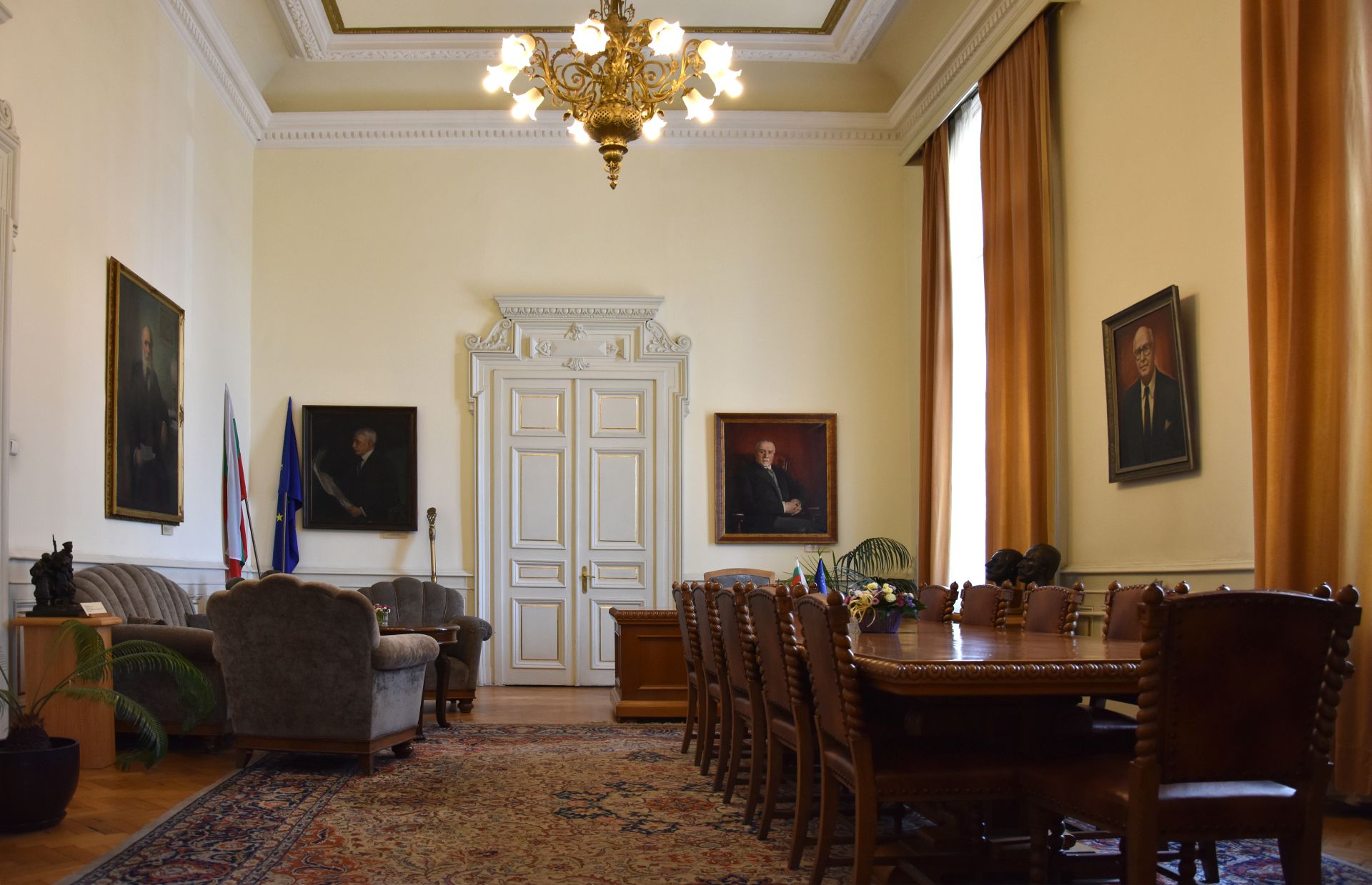
History of BAS
The Bulgarian Academy of Sciences is the successor to the Bulgarian Learned Society, founded on 12 October 1869 in the Romanian town of Braila. Its purpose was to disseminate enlightenment among Bulgarians, to improve the Bulgarian language and study Bulgarian history and manners, to be a scientific center and to establish contacts with similar scientific centers abroad. The first President of the Society was the university scientist and historian Marin Drinov, and one of its founders, Vasil D. Stoyanov, was the secretary. After the Liberation of Bulgaria, BLS transferred its activities to Sofia and established itself as an authoritative scientific center with a rich social, cultural and political activity. In 1911, it was renamed Bulgarian Academy of Sciences, and the first law on it was adopted.
Donation campaign
The Board of the Bulgarian Academy of Sciences has started a donation campaign for fundraising under the title and with the cause “150 Years of the Bulgarian Academy of Sciences”. The campaign will continue throughout 2019 and is addressed to all our colleagues as well as to institutions, organizations, partners.
The aim is to support the activities and organization of the jubilee anniversary, as well as to support a major renovation of the BAS building, the renovation of the buildings of BAS – cultural monuments, the publishing of jubilee editions and others.
Thank You!
The donation account is:
IBAN: BG90 BNBG 9661 3100 1321 01
BIC: BNBGBGSD
Address: 1 “15 Noemvri” Str., 1040 Sofia, Bulgaria
Bulstat: 000662018
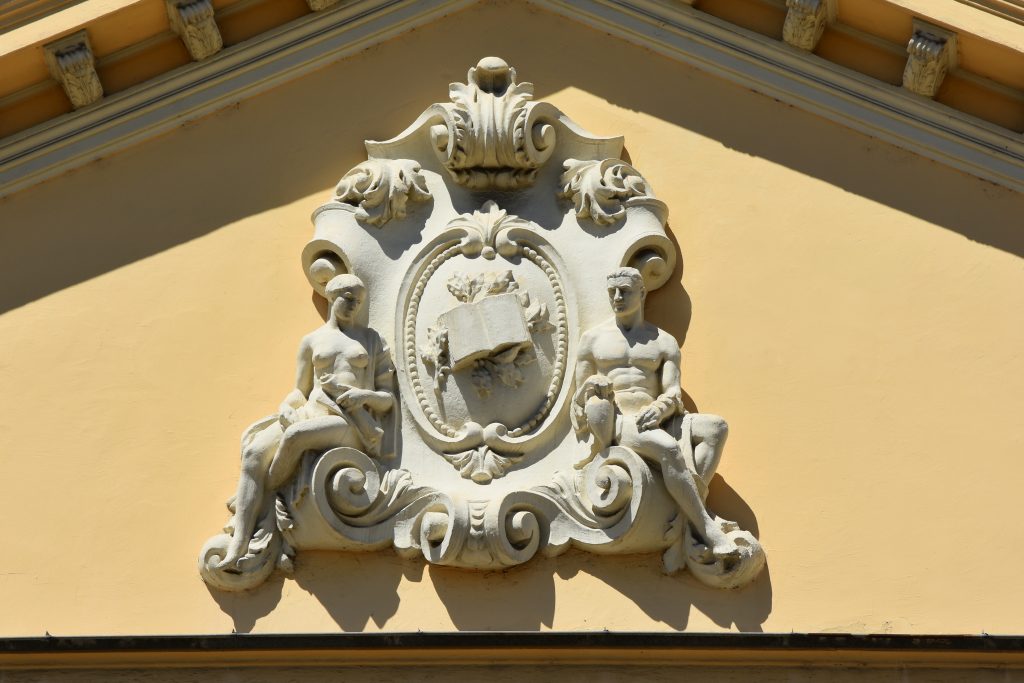

Donation campaign
The Board of the Bulgarian Academy of Sciences has started a donation campaign for fundraising under the title and with the cause “150 Years of the Bulgarian Academy of Sciences”. The campaign will continue throughout 2019 and is addressed to all our colleagues as well as to institutions, organizations, partners.
The aim is to support the activities and organization of the jubilee anniversary, as well as to support a major renovation of the BAS building, the renovation of the buildings of BAS – cultural monuments, the publishing of jubilee editions and others.
Thank You!
The donation account is:
IBAN: BG90 BNBG 9661 3100 1321 01
BIC: BNBGBGSD
Address: 1 “15 Noemvri” Str., 1040 Sofia, Bulgaria
Bulstat: 000662018
News

We are discovering new horizons!
150 trees for Earth Day and the 150th anniversary of the Bulgarian Academy of Sciences
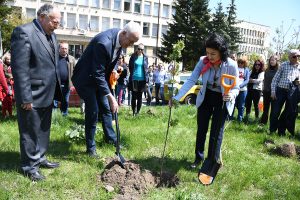 Scientists and employees of the Bulgarian Academy of Sciences launched the initiative to plant 150 trees on the occasion of Earth Day and the 150th anniversary of BAS. Saplings of more than 25 deciduous and coniferous species will be afforested in the scientific complex of BAS at 4th km. (more…)
Scientists and employees of the Bulgarian Academy of Sciences launched the initiative to plant 150 trees on the occasion of Earth Day and the 150th anniversary of BAS. Saplings of more than 25 deciduous and coniferous species will be afforested in the scientific complex of BAS at 4th km. (more…)
Fifth Graders learned about the feasting rituals of lazaruvane with folklorists from IEFSEM – BAS
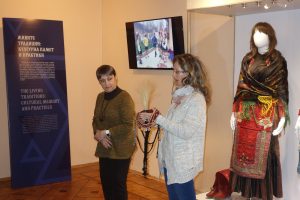 Scientists from the Institute of Ethnology and Folklore Studies with Ethnographic Museum of BAS introduced pupils from the 4th Primary School “Prof. John Atanasoff” in Sofia to the traditions on Lazar Day’s holiday called “lazaruvane”. The Fifth grade pupils listened to an educational lecture related to the feasting rituals of lazaruvane and learned more about the work of folklorists and ethnologists. (more…)
Scientists from the Institute of Ethnology and Folklore Studies with Ethnographic Museum of BAS introduced pupils from the 4th Primary School “Prof. John Atanasoff” in Sofia to the traditions on Lazar Day’s holiday called “lazaruvane”. The Fifth grade pupils listened to an educational lecture related to the feasting rituals of lazaruvane and learned more about the work of folklorists and ethnologists. (more…)


